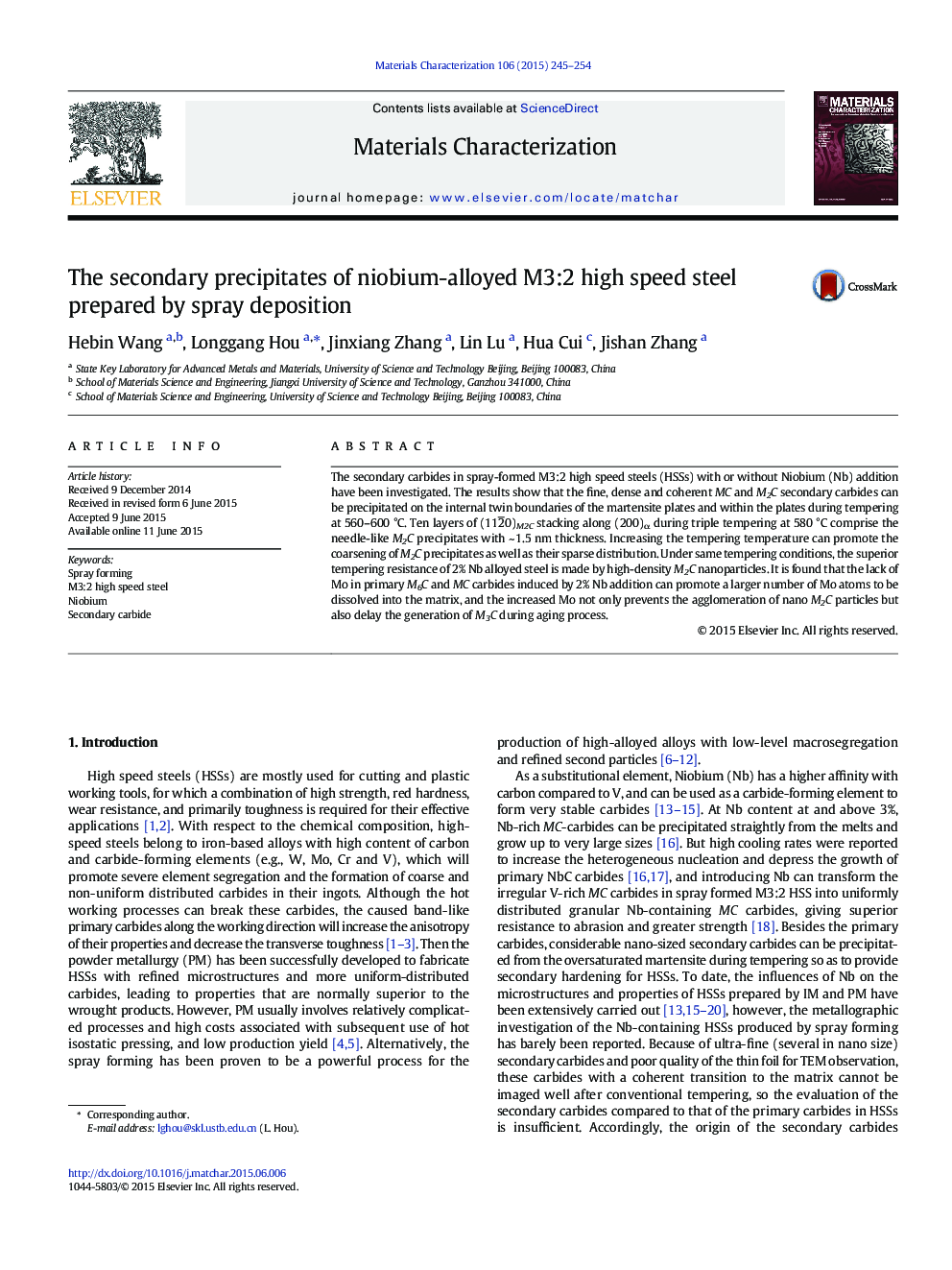| Article ID | Journal | Published Year | Pages | File Type |
|---|---|---|---|---|
| 7970318 | Materials Characterization | 2015 | 10 Pages |
Abstract
The secondary carbides in spray-formed M3:2 high speed steels (HSSs) with or without Niobium (Nb) addition have been investigated. The results show that the fine, dense and coherent MC and M2C secondary carbides can be precipitated on the internal twin boundaries of the martensite plates and within the plates during tempering at 560-600 °C. Ten layers of (112¯0)M2C stacking along (200)α during triple tempering at 580 °C comprise the needle-like M2C precipitates with ~ 1.5 nm thickness. Increasing the tempering temperature can promote the coarsening of M2C precipitates as well as their sparse distribution. Under same tempering conditions, the superior tempering resistance of 2% Nb alloyed steel is made by high-density M2C nanoparticles. It is found that the lack of Mo in primary M6C and MC carbides induced by 2% Nb addition can promote a larger number of Mo atoms to be dissolved into the matrix, and the increased Mo not only prevents the agglomeration of nano M2C particles but also delay the generation of M3C during aging process.
Related Topics
Physical Sciences and Engineering
Materials Science
Materials Science (General)
Authors
Hebin Wang, Longgang Hou, Jinxiang Zhang, Lin Lu, Hua Cui, Jishan Zhang,
